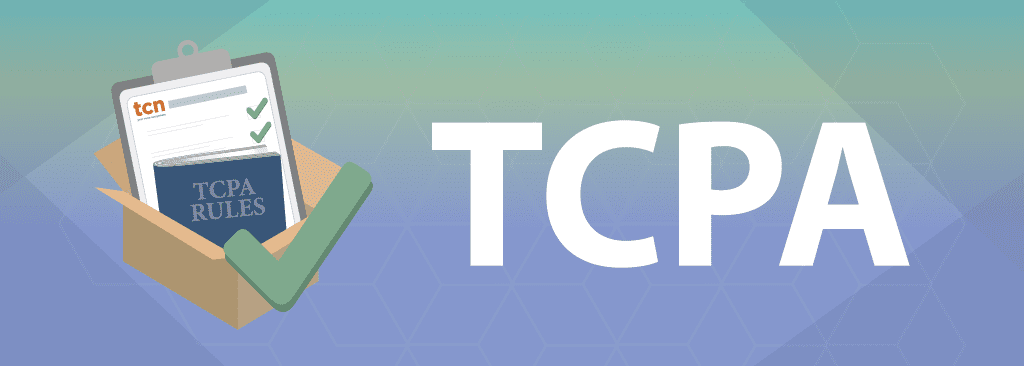What is TCPA Compliance and How Does it Apply to My Call Center?
Back to the Basics
Let’s take a step back and brush up on the basics of TCPA compliance. The Telephone Consumer Protection Act (TCPA) is in place to do exactly as it says, protects consumers. These regulations focus on making sure people do not get phone calls that are repetitive, irrelevant, or excessively intrusive.
It’s probably fair to say that everyone has answered a phone call from an unfamiliar number, only to be greeted with a recording about your car’s extended warranty — or something to the same effect. This probably ends with you hanging up the phone, feeling slightly annoyed. Thankfully, the TCPA rules are in place to protect you as a consumer, from being harassed by calls coming in multiple times a day, every day.
However, as a call center manager, these compliance regulations take on a whole different look. As a legitimate business, you need to make sure your calls follow the rules while also reaching the intended consumer and not getting marked as spam. Take a look at a few ways TCPA can apply to your call center and how to stay compliant.
If You Use an Automatic Telephone Dialing System (ATDS)…
An ATDS can be a predictive dialer, autodialer, robocaller, etc. — anything that automatically dials phone numbers. If you are using one of these in your call center, there are a few things you should know.
- TCPA requires that you do not use an autodialer to make calls to mobile phones or other recipients where the receiver pays for the call itself.
- It’s prohibited to use an ATDS to make a call to any emergency phone line, guest room of a hotel or hospital, health care facility, or a number assigned to a paging service.
- Prior express consent is required if using an ATDS to call a residential phone number.
- ATDS can not be used to call a cell or mobile phone.

If You Need to Have Prior Consent…
Many of the TCPA communication regulations are dependent on whether or not you have prior express written consent (PEWC). It’s important to know the details of when you need to ensure consent to stay compliant.
- Do not deliver artificial calls or recordings to residences without PEWC.
- Don’t initiate a phone call to a residential line using an artificial or prerecorded message without PEWC.
- PEWC is required before making any robocalls.
- Getting consent the right way relieves worry about expensive fines and penalties.
If You Contact Consumers Via Text…
Communicating through text can be effective and easy, but text messages are NOT exempt from TCPA regulations. When it comes to text messages, it’s best to consider them as calls because they have to follow the same rules and criteria. To stay TCPA compliant with your text messages, you need to have a great setup for your delivery campaigns.
- Do not send a marketing text without prior express written consent from the recipient (PEWC).
- Don’t send a text to a cell or smartphone without PEWC.
- Your texts may be blocked by the carrier/provider depending on certain analytics.
- It’s best to exclude cell and mobile numbers from any automated texts, unless they have given PEWC.
- Always give consumers the choice to opt out of marketing texts.
No matter the industry or call center needs, ensuring you are on track with TCPA compliance should always be a priority. This information is not legal advice and is to help readers maintain a better understanding of compliance rules. To learn more about TCPA guidelines and how it applies to your call center, take a look at TCN’s Complete Guide to TCPA Compliance.
To learn how TCN can help your call center stay compliant, request a demo today
